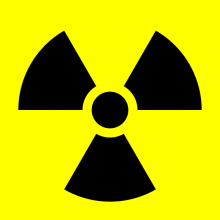The latest countdown to red lines on Iran’s nuclear progress is officially up and running. Just last year, Netanyahu said the world needed to act by this summer, lest Tehran cross thresholds in its nuclear program that would make it nearly impossible to prevent them from developing an atomic weapon.
Meanwhile, the world has set up its own countdown—to more meetings with Iran. The sides are set to meet again this week at an “expert level” and then again in April at the fuller, political negotiating-level. Iran has boasted that the West has started to see some of its perspective and media reports indicate that demands on Iran have lessened. US President Barack Obama better have real answers in his upcoming meetings with Netanyahu, or Israel will have every reason to start losing hope.
The language used by Iran following the meetings with the P5+1—the US, the UK, France, China, Russia and Germany—was not good if you’re concerned at all about the possibility of a nuclear-armed Iran. Over and again, Iranian officials spoke of the West recognizing Iranian rights. For years, Iran has argued that enriching nuclear fuel is a right the world can’t temper or dismiss.
For a normal nation, that’s right. The Nuclear Non-Proliferation Treaty (NPT) does grant members the right to peaceful nuclear uses, such as energy. But Iran has lost such a privilege by shirking its responsibility to prove its programs are peaceful.
So if the world is in fact increasing its recognition of Iran’s rights, that can only mean that Iran is being given more leeway to enjoy the privileges of nuclear research and development without having to meet all its responsibilities.
Let’s make that as clear as possible: Iran is being told by the West it can do some nuclear work without first having to obey the rules that are in place to prevent the proliferation of nuclear weapons.
Obviously, the West doesn’t want Iran to get the bomb. But it’s doubtful it’s doing enough to prevent it.
An article for The Institute for National Security Studies (INSS) think-tank in Israel by Dr. Ephraim Asculai claimed that the P5+1 wants Iran to stop it’s midlevel nuclear fuel enrichment—which is used for medical research but well on the way to weapons-grade—but is content for it to continue to enrich to the lower nuclear-energy levels. That’s a compromise of sorts for Iran, but it’s a huge compromise by the West.
But wait, it gets better for Iran. If reports from Iran are to be believed, an Iranian official claimed to the Fars News Agency that the West also did not demand it close its underground nuclear fuel enrichment facility.
So the P5+1 essentially wants Iran to demonstrate it’s no longer moving as fast as it currently is towards nuclear weapons, but does nothing to shutter a program that is already way past any reasonable peaceful use.
Iran might have to be more patient, more covert perhaps, but it can still make some level of progress towards nuclear weapons—with the virtual permission of the world. Headlong progress to the bomb is out, but only for now. Without a means of stopping Iran in the long-term, Iran simply has to be patient.
Sanctions, which have so far done some degree of damage to the Iranian economy and have apparently made them at least willing to talk to the P5+1, would be reduced in exchange for these limited concessions.
Rather than buy the West time, Iran gets it instead. And for a nation led by religious extremists—who believe they will win a global war at the end of the world—that time will surely not be wasted by those same extremists.
The most alarming piece of analysis on Iran came from Dr. Asculai, a senior research fellow at INSS. He wrote in “Early March 2013 Update: The Iranian Situation” that the stances of the US, China and Russia, combined with lack of response to North Korea’s nuclear efforts, implies the worst on Iran. Said Dr. Asculai, “If one projects the present North Korean situation onto that concerning Iran, one cannot but reach the conclusion that containment is in the air, and that unless drastic action is taken, Iran will become a nuclear-capable state in the not too distant future.”
This leaves Israel in a nightmare corner on Iran. Netanyahu’s timeline gives the world until summer to stem Iran’s progress. Rather than enhance the pressure on Iran, it appears that the West is prepped to alleviate it.
And Israel may just have the political will to act on their own. New Defense Minister Moshe Ya’alaon told Army Radio that Netanyahu’s red line on Iran remains very much in place, according to The Times of Israel.
In short, the West needs to realize that the messages it’s sending are all the wrong ones. Iran feels more optimistic for the upcoming next year, while Israel has every reason to be terrified. Obama had better have more to tell Netanyahu than just the “we won’t let Iran get the bomb” mantra. Netanyahu needs specifics. For that matter, if he doesn’t have any yet, so does Obama.
Furthermore, the West needs to set clear timelines on Iran’s nuclear program—especially negotiations on the matter. If the P5+1 wants to implement mutual confidence-building measures, then fine. Scale back sanctions in exchange for Iran slowing down. But only for six months at most. And the threats for what happens if Iran doesn’t make real offers of cooperation by that deadline should be clear and deadly serious.
The military threat shouldn’t just be left on the table, it needs to be moved to its center. Even more crippling sanctions need to be the next step if Iran keeps progressing towards nuclear weapons—not reducing the sanctions already there.
Again, sometimes compromise is needed to build trust. But just don’t compromise so Iran can build the bomb.
(By Joshua Spurlock, www.themideastupdate.com, March 17, 2013)

